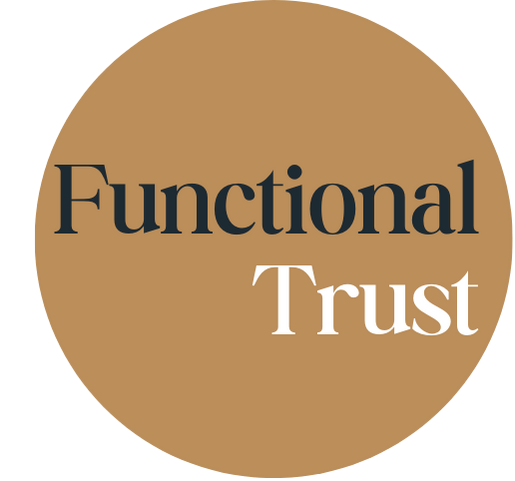We all want to set ourselves up for success, whether that’s in our careers, relationships, or personal growth. But here’s a hard truth: you can’t achieve success by just winging it. To give yourself the best chance, you need a clear understanding of two crucial things—your strengths and your weaknesses.
Why? Because when you know your strengths, you can enhance them and play to your natural advantages. And when you know your weaknesses, you can minimize their impact, making sure they don’t hold you back. Both sides are equally important, and they all come down to one central idea: preparation. Success doesn’t happen by accident—it happens when you prepare to leverage what you do best and work around what could trip you up.
Understanding Your Strengths
Your strengths are the areas where you naturally excel. These are the skills, talents, and traits that give you an edge in different situations. Maybe you’re an incredible problem-solver, a natural leader, or a creative thinker. Whatever they are, recognizing and embracing your strengths is the first step to amplifying them.
But it’s not enough to know what you’re good at—you need to actively enhance those strengths. Think of them as muscles that require training. The more you focus on using and refining them, the more powerful they become.
Here’s how to start enhancing your strengths:
- Recognize Them
It might sound obvious, but too many people don’t take the time to get crystal clear on their strengths. What are you good at? What do people frequently come to you for? Where do you consistently perform well? Spend time reflecting on these questions and get specific.
- Use Them Intentionally
Once you know your strengths, use them deliberately. Put yourself in situations that allow your strengths to shine. If you’re a natural communicator, lead meetings. If you’re a strategic thinker, volunteer for projects that require planning and foresight. Success comes from using your strengths where they matter most.
- Keep Building Them
Even strengths can be enhanced. Just because you’re good at something doesn’t mean you should coast. Keep developing those skills through practice, learning, and experience. The stronger your strengths, the more you can rely on them to drive your success.
Understanding Your Weaknesses
No one likes to admit their weaknesses. But if you’re serious about success, you have to be just as honest about your shortcomings as you are about your strengths. Your weaknesses are the areas where you struggle—whether it’s a lack of organization, difficulty delegating, or avoiding conflict.
Here’s the thing: weaknesses don’t automatically prevent you from succeeding, but they will if you ignore them. The key is to minimize their impact so they don’t derail you. That doesn’t mean you have to magically turn your weaknesses into strengths—it means being aware of them and finding ways to work around or improve them.
Here’s how to start minimizing the impact of your weaknesses:
- Identify Them Honestly
This is the hardest part for most people. We don’t like to think about where we fall short. But identifying your weaknesses doesn’t make you weak; it makes you prepared. Think about the areas where you consistently struggle or get negative feedback. Be brutally honest with yourself.
- Work on What’s Manageable
Not all weaknesses need to be “fixed,” but some absolutely do. For example, if your weakness is poor time management, you can actively improve that skill with tools, strategies, and discipline. If your weakness is a fear of public speaking, practice and coaching can help you overcome it. Focus on minimizing weaknesses that are directly holding you back.
- Delegate or Collaborate
Some weaknesses can be offset by collaborating with others whose strengths complement your gaps. If organization is not your thing, maybe it’s time to lean on someone who thrives in that area. Delegating tasks you’re not great at allows you to focus on what you do best.

Preparation Is the Key
The idea of knowing your strengths and weaknesses comes down to one word: preparation. Success rarely happens by chance. It’s built on a foundation of preparation that takes into account what you’re good at, what you struggle with, and how you can navigate both.
When you understand your strengths, you’re preparing to succeed by leveraging what sets you apart. When you understand your weaknesses, you’re preparing to succeed by avoiding pitfalls that could trip you up.
Let’s look at how this plays out in different areas of your life:
- In Decision-Making
When you know your strengths, you can make decisions that align with them. You’re more likely to choose paths that play to your natural abilities. On the flip side, knowing your weaknesses can help you avoid situations where you’re not well-equipped to succeed, or at least make sure you get the support you need to navigate them.
- In Your Relationships
Understanding your strengths and weaknesses also affects how you interact with others. You can build stronger relationships by bringing your best self forward while being humble enough to recognize where you need help. It also helps you communicate more openly—when you know what you’re working with, you can be honest with others about how to best collaborate or support each other.
- In Your Career
At work, knowing your strengths allows you to pursue roles, projects, and opportunities that align with your skill set. You can volunteer for tasks that highlight what you’re good at. On the other hand, understanding your weaknesses helps you avoid overcommitting to areas where you’re not as strong or seeking mentorship to improve.
Success Comes From Balance
To truly set yourself up for success, you need to strike a balance between maximizing your strengths and minimizing your weaknesses. Too much focus on your strengths alone, and you risk becoming overconfident or complacent. Too much focus on your weaknesses, and you risk getting stuck in self-doubt. But when you prepare with both in mind, you position yourself for growth and long-term success.
Preparation is about building a game plan that works for who you are—strengths and weaknesses included. It’s about acknowledging where you shine, working on where you struggle, and being strategic about how you move forward.
The Bottom Line
Success doesn’t come from ignoring your weaknesses or leaning too heavily on your strengths. It comes from understanding both sides of the equation and preparing accordingly. When you know your strengths and intentionally enhance them, you give yourself a competitive edge. And when you acknowledge your weaknesses and actively minimize their impact, you prevent unnecessary obstacles from holding you back.
The best way to prepare for success is by knowing who you are, owning it, and making the necessary moves to create the future you want. Strengths. Weaknesses. All of it. You’ve got to be prepared, or success will pass you by. So, ask yourself: What are you doing to prepare today?

